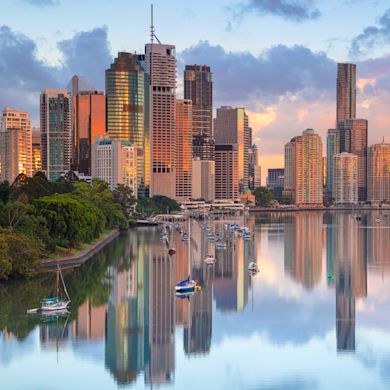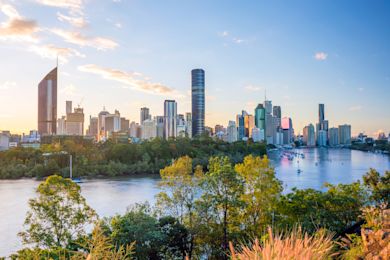Topics covered
- Published: 27 August 2025
- Updated: 26 August 2025
Studying in Australia is an exciting opportunity, but adjusting to a new country comes with challenges — especially when it comes to healthcare and personal support. As you begin your journey in Australia, it’s important to know where to find the right help and guidance.
Whether it’s a visit to a GP (General Practitioner), finding mental health support, or accessing student wellbeing centres on campus, Australia has systems in place to ensure your safety and support.
Table of Contents:
Overview of Australia's Health & Support Structure
Medical Services
Campus Support Services
Mental Health & Emotional Wellbeing
Insurance & Cost
What to Do in an Emergency
FAQs
Overview of Australia's Health & Support Structure
Australia has a robust healthcare system and a strong focus on student wellbeing. Services are available both on and off campus, ranging from walk-in clinics and hospitals to academic mentoring and mental health support.
Students can access care through public and private providers, and international students are covered under Overseas Student Health Cover (OSHC), which gives access to a wide network of medical services.
Understanding how the Australian healthcare system works will help you feel more confident and prepared during your studies.
Medical Services
As an international student, your Overseas Student Health Cover (OSHC) is your key to accessing healthcare services. Here are the main ways you can use it
General Practitioner Visits: A GP is your first point of contact for most medical issues. You can book an appointment for anything from a cold to a referral to a specialist. Many GPs accept OSHC directly, so you may not have to pay upfront.
Hospital Access: Public and private hospitals are available across Australia. In an emergency, head to the nearest hospital's emergency department. OSHC usually covers emergency hospital care, but it’s always good to confirm with your provider.
Emergency Services: In case of an emergency, dial 000 (free from any phone) for ambulance, fire, or police services. For non-urgent health concerns, you can also use Healthdirect Australia for advice.
Medicare vs OSHC: Medicare is Australia’s public health system, but it’s only available to Australian citizens, permanent residents, and people from a few countries with reciprocal agreements — Pakistan is not one of them. So, as an international student, you won't be covered by Medicare.
Instead, you must have Overseas Student Health Cover (OSHC), which is mandatory for your visa. OSHC helps cover your basic healthcare needs like doctor visits (GPs), hospital treatment, ambulance services, and some prescription medicines. Your OSHC is your main access to the healthcare system in Australia, so keep your policy active, carry your card or app, and make sure you know how to use it when needed.
Campus Support Services
Australian universities are committed to supporting students academically, emotionally and socially. Whether you’re struggling with studies, adjusting to a new culture, or simply need someone to talk to, there are services in place to help you feel supported from your very first day on campus.
Academic Help: Most universities have student learning centres, tutoring programs, and academic advisors who can guide you with assignments, exam prep, study techniques, time management, and even referencing. These services are usually free and available to all students — just book an appointment or drop in during office hours.
Student Advisors: Student advisors are here to guide you through many aspects of university life — whether you need help choosing courses, keeping up with your studies, finding housing, understanding your visa, or getting connected to mental health support. If you’re not sure where to start, they’re a great first stop.
Peer Mentoring: Many universities offer peer mentoring programs where experienced students volunteer to support newcomers during their first semester. These mentors offer tips on campus life, help you get into the rhythm of university, and can be a familiar, friendly face as you adjust to your new surroundings.
Orientation Support: Orientation Week (O-Week) is your introduction to university life. It includes campus tours, information sessions, social activities, and workshops. It's a great chance to meet fellow students, learn how to access campus services, and feel more confident about starting your academic journey in Australia.
Mental Health & Emotional Wellbeing
Moving to a new country can be exciting, but it also brings emotional challenges — such as homesickness, stress, anxiety, and cultural adjustment. Australian universities take mental health seriously and provide a range of free, confidential support services.
Counselling Services: Every university offers access to qualified counsellors or psychologists. These professionals can help you deal with emotional difficulties, academic stress, or personal concerns. Sessions are private and usually free for enrolled students.
You can book a session in person or online, and most services offer flexible appointment times to fit around your studies.Therapy & Hotlines: In case of urgent mental health needs, there are also 24/7 hotlines available across Australia:
Lifeline Australia – 13 11 14 (24/7 crisis support and suicide prevention)
Beyond Blue – 1300 22 4636 (support for anxiety, depression, and mental health)
Universities often also offer access to student wellbeing centres, which provide mental health workshops, group therapy sessions, and drop-in support.
Emotional Support for Pakistani Students: It’s completely normal to feel culturally disconnected at times. To help you feel more at home, many universities have Pakistani student societies, Islamic student associations, and multicultural clubs where you can meet peers with similar backgrounds. These communities offer friendship, cultural connections, and a welcoming space to share your experiences.
Insurance & Cost
What Is OSHC?
Overseas Student Health Cover (OSHC) is mandatory for all international students. It’s designed to help cover basic healthcare costs during your stay in Australia. Your OSHC may include:
Doctor (GP) consultations
Emergency ambulance services
Hospital treatments
A portion of prescription medicine costs
Some plans also include telehealth services and 24/7 nurse helplines. Be sure to check your policy for specific coverage.
How to make a claim?
Keep your OSHC card or app with you at all times.
Your card or digital membership is proof of your insurance and may be needed when visiting a doctor or hospital.Choose healthcare providers that bill your OSHC provider directly.
Some clinics and hospitals have direct billing arrangements with OSHC providers, so you will not need to cover the cost yourself at the time of the visit.If you do cover the cost yourself, submit a claim online through your provider’s website or app with receipts attached.
Be sure to upload all necessary documents, such as medical invoices, payment receipts, and any doctor’s notes if needed. Most claims are processed within a few business days.
What’s Not Covered?
OSHC is designed for basic medical needs, but it doesn’t include everything.
Typically, the following are not covered:
Dental or optical care (unless you have extras)
Standard OSHC does not include routine dental checkups, glasses, or eye exams. You’ll need to purchase additional coverage if you want these services included.Physiotherapy and alternative medicine
Treatments such as massage therapy, acupuncture, chiropractic services, or physiotherapy usually require extra or private insurance.Pre-existing conditions (depending on the provider and policy)
If you had a medical condition before your arrival in Australia, treatment for it might be excluded or subject to a waiting period. Always check your policy details.
What to Do in an Emergency
Emergencies can be stressful — especially when you're in a new country. Whether it’s a medical issue, a safety concern, or a mental health challenge, it’s important to know the right steps to take. In Australia, help is available 24/7, and services are easy to reach.
Call for help
In a life-threatening situation — such as a serious accident, sudden illness, fire, or any danger to personal safety — dial 000 from any phone. This connects you to emergency services (Ambulance – Police – Fire Department)
Calls to 000 are free and can be made from any mobile or landline, even if you have no credit or SIM card.
For non-emergency medical advice, you can call Healthdirect Australia at 1800 022 222. This free helpline is staffed by registered nurses who can help you decide if you need to see a doctor, go to a hospital, or manage your symptoms at home.
Use Helpful Health Apps
Having the right apps on your phone can save you time and stress in uncertain moments.
Healthdirect Australia App – A government-backed tool that lets you:
Check symptoms and get guidance
Locate nearby GPs, pharmacies, or walk-in clinics
Find after-hours services
Your OSHC Provider’s App – Most health insurance providers offer apps that allow you to:
Access your digital OSHC card
View your coverage
Submit claims
Find approved doctors and clinics near you
FAQs
What is OSHC & is it mandatory for students in Australia?
OSHC (Overseas Student Health Cover) is health insurance for international students. Yes, it’s mandatory for your student visa and covers basic medical care like doctor visits, hospital stays, and some medicines.Are mental health services free for Pakistani students?
Not all mental health services are free. Some are covered under OSHC, while others may have extra costs. You can also access free support hotlines and counselling through your university.
Need help choosing the right OSHC or support services? Reach out to your IDP counsellor and get personalised, FREE guidance every step of the way.
One account for all your study abroad needs
Create your profile and unlock a wide array of features including personalised recommendations, fast-tracked applications and much more.











